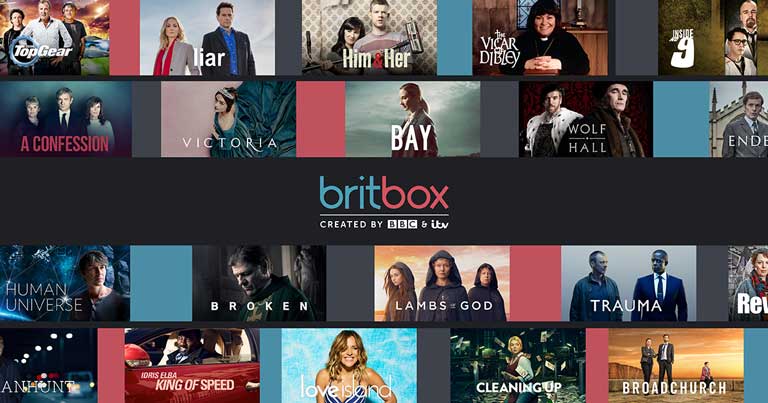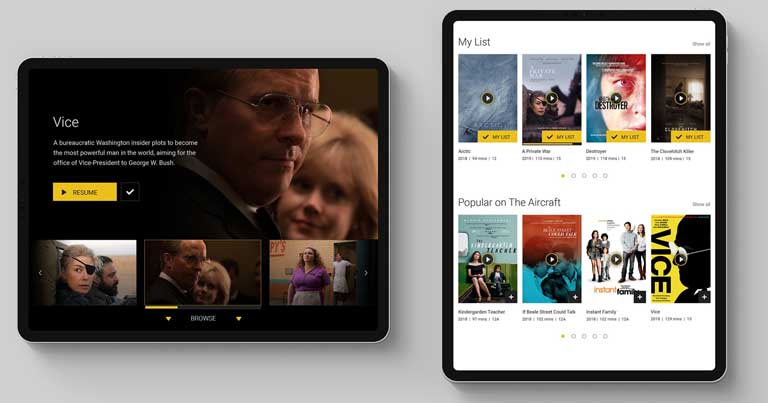How airlines and suppliers must reinvent their inflight content strategies to create new digital experiences
The following article was published by Future Travel Experience
FTE speaks to Paul Harper, Director, Harper & Co, to find out how the disruption in the content supply chain will affect the IFE industry.

It’s no surprise that recent lockdown measures imposed by countries around the world have led to a surge in TV screen time and streaming. For instance, the British Office of Communication, also known as Ofcom, reported that people in the United Kingdom spend 40% of their day watching TV and online video services – a rise of almost a third on last year.
At the same time, while we get used to on demand streaming services like Netflix, Hulu and Disney+, just to name a few, Hollywood studios have postponed the release of big blockbusters due to the COVID-19 pandemic, leaving a massive gap in the distribution of content. One area that has been affected by these consumer and market shifts is the entertainment experience airlines provide inflight.
So, with this in mind, FTE spoke to Paul Harper, Director, Harper & Co, and one of the industry’s leaders in creating inflight digital experiences, to find out how this disruption in the market will impact the way passengers interact with inflight entertainment (IFE) systems up in the air.
FTE: How has COVID-19 affected the inflight content industry? And what do you think would be the long-term impact?

Paul Harper: One of the key impacts which will affect the future of inflight content is the disruption in the supply of content, which has exposed the high cost, operational challenges and satisfaction of delivering an inflight entertainment experience. Seatback, drop down and Wi-Fi entertainment systems were developed for one main purpose and that was to entertain customers with new release movies, supported by other movie, TV and audio content.
Theatrical release windows are changing dramatically and in the last week we have seen one studio reduce the window from 90 to 17 days. We are also seeing studios release blockbuster content day on day in cinemas and on owned streaming platforms with Wonder Woman 1984 being an example.
We are hearing that three of the main studios have closed their non-theatrical departments and there is a real risk of the removal of content licensing for airlines from 2022.
Airlines and suppliers need to develop a strategy for a future entertainment experience which assumes that from 2022 there will be no premium movie or TV content available to licence and offer their customers, and understand how a digital inflight experience can meet the customer need.
FTE: What are some of the latest IFE content trends that you have been observing?
PH: With production of content having virtually stopped and movie releases pushed out or moved to PVOD (premium video-on-demand) or streaming services, airlines have been forced to make dramatic changes to their offering. To save costs content cycles have moved to bi-monthly or quarterly updates.
Airlines now have data and insights to understand the level of satisfaction from a reduced offering, and how that correlates with the return on investment. This has presented a new perspective to the airlines for driving different strategic and commercial decisions.
Airlines are realising that content which was available pre-COVID-19 is unlikely to return and customer needs have changed. For the entertainment that is available, more uplifting, comedy, discovery and wellbeing content is being offered.
FTE: So how are customer behaviours changing in terms of entertainment consumption? And what direction should airlines and their suppliers be taking to adapt to these changes?
PH: Due to the extended periods of restricted movements and having to stay at home during the pandemic, customers have become hooked on the binge-watching drug that is streaming content. The experience across the different streaming platforms is familiar and viewers don’t need to relearn the experience as is the case when they use an inflight entertainment system.
The impact this is having on the engagement with inflight entertainment is significant as customers are finding that the quality of the content is poor, the interaction with the experience and lack of personalisation is unlike their own device, and this is leading some customers to not move past the welcome screen on the seat back.
Airlines and suppliers need to understand that the current broken model will no longer deliver the required experience customers will expect when travel resumes. Investing in high cost movie content which has already been seen on a streaming service, or substituting premium content which isn’t available inflight, with lower value content will be a poor investment for airlines in terms of ROI and customer satisfaction.
It’s in this area Harper & Co has been working with suppliers to identify new opportunities to use their strengths and core capability to develop new products and services or partner with other companies to create these new services and experiences.
The problem isn’t the systems themselves, which are robust and developed by some really great teams, it’s that the core proposition of delivering movies has gone and been replaced by the delivery of content via connectivity to a passenger’s own device.

FTE: Looking ahead, how do you envision the future of the IFE content experience?
PH: Pretty simple really, there won’t be an IFE content experience, it will be a digital experience which extends across the customer journey from home, to the airport, inflight and then arriving at their destination. Airlines will engage with their customers through digital devices and for inflight they will need to provide passengers with high power charging for their devices, a large connectivity pipe with low latency and sufficient amounts of data to stream content, and a monitor they can seamlessly connect to.
We won’t see content delivered to an aircraft and stored on a server as we do today, as that content won’t be available and the content which is, will not be that which customers will want.
Airlines will be able to manage all of the experience through their mobile app including food and beverage purchases, moving maps, crew engagement, travel notifications, in-cabin upgrades. Harper & Co has been exploring these with partners and the options are endless and exceed what is possible with the in-cabin experiences we see today.
FTE: During the upcoming FTE APEX Virtual Expo, you will be moderating a session entitled ‘Navigating Content Disruption’, which will bring together panellists from BBC Studios, WestJet, Spafax and OneWeb. What are some of your main expectations from the discussion?
PH: We are going to explore what this market shift means for the BBC in how they make their content available for consumer. How does an airline meet the needs of a ground experience and deliver the same experience inflight? What role does a content service provider play in the future where the passenger has the relationship with the content creator, and finally how connectivity providers like OneWeb are going to have to meet the biggest challenge of all, a seamless connected experience which will be the primary channel for all content.
To find out more about FTE APEX Virtual Expo, co-located with IFSA Onboard Hospitality Virtual Expo, taking place on 8 and 9 December, and to register to attend, visit our website here.
Article originally published here:
How airlines and suppliers must reinvent their inflight content strategies to create new digital experiences
from Future Travel Experience https://ift.tt/39xcCKD
Comments
Post a Comment